We offer home-like treatment centers with high staff to patient ratios, utilize evidence-based treatments like CBT, and work to ensure that every patient receives a custom treatment program built around their mental health needs. Dual diagnosis means there are additional challenges to getting clean and sober, and Asana Recovery is here to help you meet those challenges.

However, each also increases vulnerability to the other. So, while 40.2 million Americans have a substance use disorder, 17 million of us have both a substance use disorder and a mental illness diagnosis.
Here, this phenomenon is known as dual diagnosis or comorbid disorders. Often, it can be difficult to tell if the substance use disorder or the mental health disorder came first. However, both exacerbate the other and get in the way of treatment. This means that treating dual diagnosis patients requires custom treatment plans working to assess the root of the issue, to treat barriers to recovery, and then to mitigate the impact of the mental health disorder on your mental health.
Today, more Americans than ever struggle with mental health problems including mental health disorders and substance use disorders.
Veterans often have significantly higher rates of substance abuse and addiction than the general population. That’s especially true in veterans who retired from military service within the last twenty years, where rates of substance addiction are almost twice that of the general population.

Dual diagnosis occurs at any point when you have both a substance use disorder (addiction) and a mental health disorder. This is also referred to as co-occurring disorder and comorbid disorder. It means that you have two separate disorders, which may influence each other, but which likely developed at different times.
Here, common mental health disorders that overlap with substance use disorders include PTSD, ADHD, anxiety, depression, OCD, panic disorder, bipolar disorder, borderline personality disorder, and schizophrenia. However, any mental health disorder can overlap with a substance use disorder. In addition, you may have more than one mental health diagnosis and still have a dual diagnosis.
Dual diagnosis treatment requires a personalized treatment program designed around the specific needs and current mental health of the patient seeking that care. In most cases, dual diagnosis tracks require residential care, longer treatment periods, and more one on one time with staff. Our trained and licensed addiction treatment team will be on-hand to guide you through every step of the way, to find medication and treatment options that work for you, and to help you move through obstacles and into recovery.
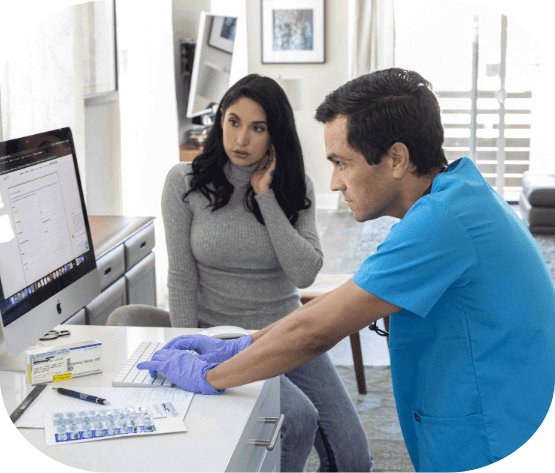
If you’re currently struggling with drugs or alcohol, that addiction is life threatening. Drug and alcohol detox gets you clean or sober, using either a social approach where you quit and go through withdrawal, or a medication assisted treatment program.
Asana Recovery uses both options, which will be recommended based on the amount of substance you’re using, which substances you’re using, and your mental and physical health.
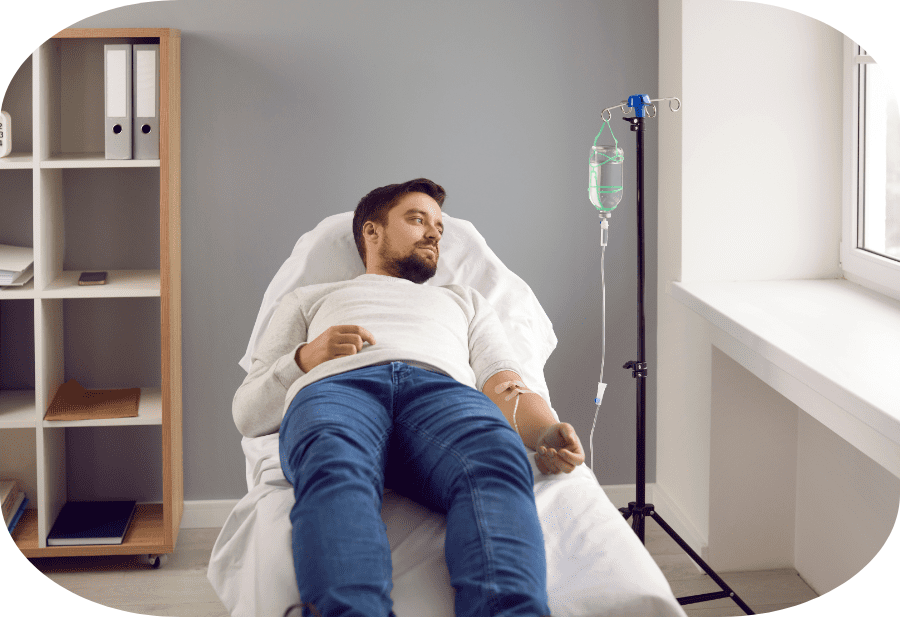
Detox normally involves staying at our clinic where you can be monitored and given the medical attention to move through withdrawal safely.
That’s especially important for people with anxiety, depression, and other mood disorders, which can cause more extreme mood swings, depression, and suicidal ideation during withdrawal. We ensure you have the emotional, psychological, and medical support to stay safe as you get clean.
For most opiates
For most stimulants
For most amphetamines
For most
sleeping medications
For alcohol
For most opiates
For most stimulants
For most amphetamines
For most
sleeping medications
For alcohol
In addition, if you’re addicted to a benzodiazepine, you may be asked to go onto a tapering schedule.
This can significantly extend the detox period, because you will sometimes spend several weeks on detox instead of the standard 7-14 days.

After you’ve moved out of detox, we move you into one of our rehab facilities. Here, we maintain multiple residential treatment centers in Orange County, allowing us to keep the patient population small. This means you get more one-on-one time with nurses and doctors, so we have more time to receive personalized treatment and care. Asana’s approach is to triage first.
This means that we treat symptoms impacting your health first, then those getting in the way of treatment, and then the substance use disorder. Afterwards, we’ll work on quality-of-life improvements. Our treatment centers provide a holistic approach, blending therapy, counseling, medication, and psychological support.
This includes:
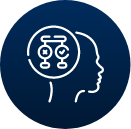
Cognitive Behavioral Therapy (CBT) helps patients to identify underlying problems, to identify behaviors negatively contributing to substance abuse, and to create and follow through on positive changes in behavior and coping mechanisms.
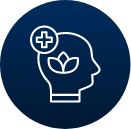
Individual therapy involves one-on-one sessions with a therapist, where patients discuss problems, obstacles, and work on building strategies to improve or overcome those issues.
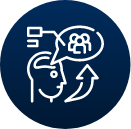
Dialectical Behavior Therapy (DBT) this synergy of concepts allows a person to accept their past and make changes for a better future in recovery. In DBT our clients learn sober skills to cope with negative thoughts and behaviors to prevent relapse.

Counseling and group counseling incorporate evidence-based treatment to help individuals work through cravings, build life skills, manage symptoms of mental illness, build relationship skills, manage stress, and much more.
Cognitive Behavioral Therapy (CBT) helps patients to identify underlying problems, to identify behaviors negatively contributing to substance abuse, and to create and follow through on positive changes in behavior and coping mechanisms.
Individual therapy involves one-on-one sessions with a therapist, where patients discuss problems, obstacles, and work on building strategies to improve or overcome those issues.
Dialectical Behavior Therapy (DBT) This synergy of concepts allows a person to accept their past and make changes for a better future in recovery. In DBT our clients learn sober skills to cope with negative thoughts and behaviors to prevent relapse.
Counseling and group counseling incorporate evidence-based treatment to help individuals work through cravings, build life skills, manage symptoms of mental illness, build relationship skills, manage stress, and much more.

A mental health disorder will almost always mean that you need long-term care and treatment to stay in recovery. At Asana Recovery, we understand that you should always have someone to talk to in case things go wrong. Mental health disorders will always mean that you will have bad days, you are more vulnerable to relapse, and you need ongoing mental healthcare and counseling. Asana Recovery can help you on this journey, offering support, ongoing counseling, and help finding local support groups.
Every aspect of dual diagnosis treatment has to be personalized to treat your specific mental health problems, as they impact you when you move into treatment and as you progress through treatment. At Asana Recovery, we take that seriously.
If you or a loved one has a mental health disorder, you are more vulnerable to substance abuse and to addiction. Often, it can be difficult to tell if your loved one is struggling with drugs or alcohol because the mental health disorder can mask the symptoms of substance abuse. In other cases, people with mental health problems actually abuse the very drugs they’ve been prescribed as treatment, which can be difficult to spot until things get out of hand. That also holds true internally, where mental health problems can make it even more difficult to tell when substance abuse is getting out of hand.
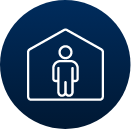
They may withdraw from friends and family, refuse to hang out, spend most of their time alone, and may even spend less time at social outings or venues where they cannot drink or use.
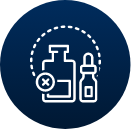
This can range from automatically taking painkillers without needing them to chugging bottles of alcohol or even reacting with extreme emotions when you try to prevent them from using.
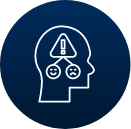
People with substance use disorders increase risky behavior, including lying, risking traffic accidents, breaking the law, using substances before driving or operating machinery, etc.
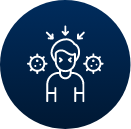
Physical dependence is characterized by high drug tolerance and an inability to stop using the substance without withdrawal symptoms. For many people, using becomes about being able to function or feel okay because if they don’t, withdrawal symptoms kick in.
They may withdraw from friends and family, refuse to hang out, spend most of their time alone, and may even spend less time at social outings or venues where they cannot drink or use.
This can range from automatically taking painkillers without needing them to chugging bottles of alcohol or even reacting with extreme emotions when you try to prevent them from using.
People with substance use disorders increase risky behavior, including lying, risking traffic accidents, breaking the law, using substances before driving or operating machinery, etc.
Physical dependence is characterized by high drug tolerance and an inability to stop using the substance without withdrawal symptoms. For many people, using becomes about being able to function or feel okay because if they don’t, withdrawal symptoms kick in.

If you or a loved one is struggling with mental health problems and a substance use disorder, there is help. Asana Recovery offers a dual diagnosis track designed to help you overcome the worst of symptoms, get your substance abuse under control, and then work on getting your life back. Our program is fully personalized, delivered in home-like residential facilities designed to keep you comfortable, and adjusted to your needs as you progress through treatment.
Dual diagnosis complicates addiction treatment. It’s important that you have the hands-on support, full-time care, and personalized approach to ensure that your needs are being met – even as addiction and mental illness interact in unexpected ways.
We are committed to providing a comfortable and effective place for clients to get clean and begin their journey in recovery. Your recovery is our number ONE priority at Asana Recovery. Call us today.
Saving lives. Supporting families. Strengthening communities.
© Copyright 2024 Asana Recovery™ | All Rights Reserved | Privacy Policy
Asana Recovery
We firmly believe that the internet should be available and accessible to anyone, and are committed to providing a website that is accessible to the widest possible audience, regardless of circumstance and ability.
To fulfill this, we aim to adhere as strictly as possible to the World Wide Web Consortium’s (W3C) Web Content Accessibility Guidelines 2.1 (WCAG 2.1) at the AA level. These guidelines explain how to make web content accessible to people with a wide array of disabilities. Complying with those guidelines helps us ensure that the website is accessible to all people: blind people, people with motor impairments, visual impairment, cognitive disabilities, and more.
This website utilizes various technologies that are meant to make it as accessible as possible at all times. We utilize an accessibility interface that allows persons with specific disabilities to adjust the website’s UI (user interface) and design it to their personal needs.
Additionally, the website utilizes an AI-based application that runs in the background and optimizes its accessibility level constantly. This application remediates the website’s HTML, adapts Its functionality and behavior for screen-readers used by the blind users, and for keyboard functions used by individuals with motor impairments.
If you’ve found a malfunction or have ideas for improvement, we’ll be happy to hear from you. You can reach out to the website’s operators by using the following email
Our website implements the ARIA attributes (Accessible Rich Internet Applications) technique, alongside various different behavioral changes, to ensure blind users visiting with screen-readers are able to read, comprehend, and enjoy the website’s functions. As soon as a user with a screen-reader enters your site, they immediately receive a prompt to enter the Screen-Reader Profile so they can browse and operate your site effectively. Here’s how our website covers some of the most important screen-reader requirements, alongside console screenshots of code examples:
Screen-reader optimization: we run a background process that learns the website’s components from top to bottom, to ensure ongoing compliance even when updating the website. In this process, we provide screen-readers with meaningful data using the ARIA set of attributes. For example, we provide accurate form labels; descriptions for actionable icons (social media icons, search icons, cart icons, etc.); validation guidance for form inputs; element roles such as buttons, menus, modal dialogues (popups), and others. Additionally, the background process scans all the website’s images and provides an accurate and meaningful image-object-recognition-based description as an ALT (alternate text) tag for images that are not described. It will also extract texts that are embedded within the image, using an OCR (optical character recognition) technology. To turn on screen-reader adjustments at any time, users need only to press the Alt+1 keyboard combination. Screen-reader users also get automatic announcements to turn the Screen-reader mode on as soon as they enter the website.
These adjustments are compatible with all popular screen readers, including JAWS and NVDA.
Keyboard navigation optimization: The background process also adjusts the website’s HTML, and adds various behaviors using JavaScript code to make the website operable by the keyboard. This includes the ability to navigate the website using the Tab and Shift+Tab keys, operate dropdowns with the arrow keys, close them with Esc, trigger buttons and links using the Enter key, navigate between radio and checkbox elements using the arrow keys, and fill them in with the Spacebar or Enter key.Additionally, keyboard users will find quick-navigation and content-skip menus, available at any time by clicking Alt+1, or as the first elements of the site while navigating with the keyboard. The background process also handles triggered popups by moving the keyboard focus towards them as soon as they appear, and not allow the focus drift outside it.
Users can also use shortcuts such as “M” (menus), “H” (headings), “F” (forms), “B” (buttons), and “G” (graphics) to jump to specific elements.
We aim to support the widest array of browsers and assistive technologies as possible, so our users can choose the best fitting tools for them, with as few limitations as possible. Therefore, we have worked very hard to be able to support all major systems that comprise over 95% of the user market share including Google Chrome, Mozilla Firefox, Apple Safari, Opera and Microsoft Edge, JAWS and NVDA (screen readers).
Despite our very best efforts to allow anybody to adjust the website to their needs. There may still be pages or sections that are not fully accessible, are in the process of becoming accessible, or are lacking an adequate technological solution to make them accessible. Still, we are continually improving our accessibility, adding, updating and improving its options and features, and developing and adopting new technologies. All this is meant to reach the optimal level of accessibility, following technological advancements. For any assistance, please reach out to